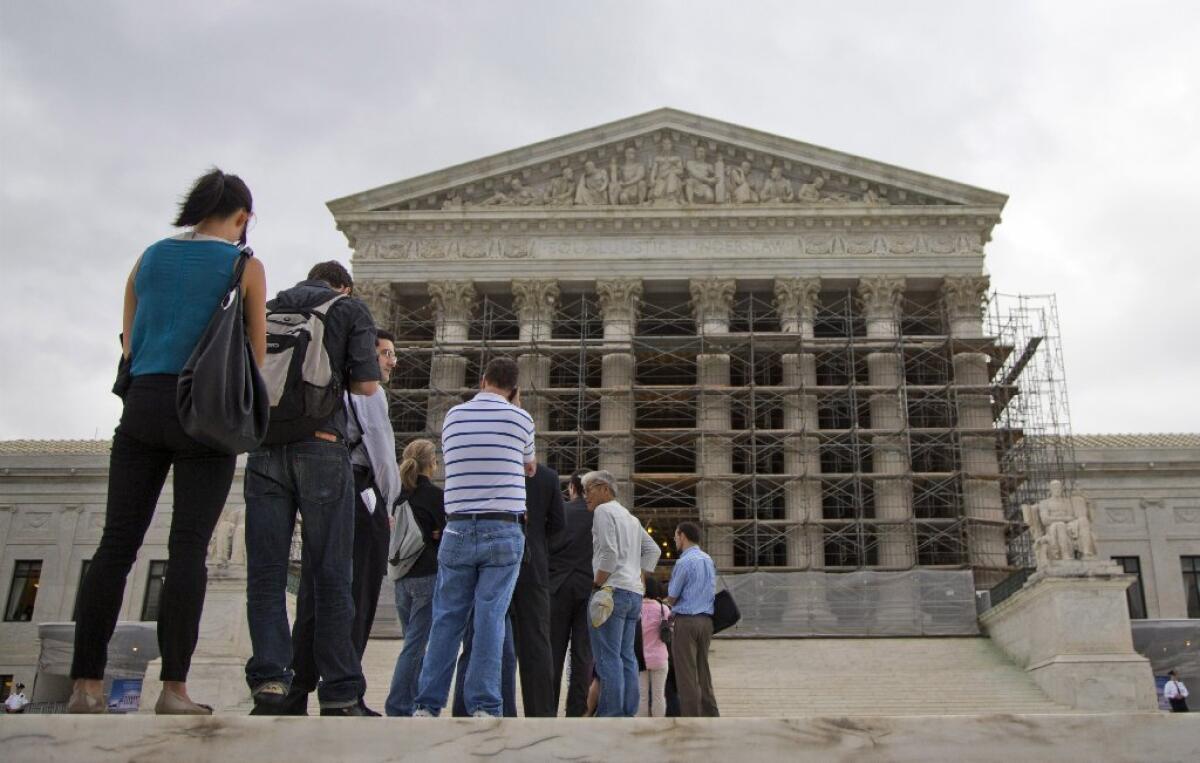A tangled web for SCOTUS

A bizarre act of revenge against a romantic rival was the unlikely genesis of an important debate in the Supreme Court last week about federal power, states’ rights and the conduct of U.S. diplomacy.
The justices were asked to overturn the conviction of Carol Anne Bond, an immigrant from Barbados who was convicted of trying to poison her best friend after she learned that the woman had been impregnated by Bond’s husband. Bond stole a dangerous chemical from the laboratory where she worked and smeared it on the other woman’s car door, mailbox and doorknobs. Her victim suffered only a minor burn on the thumb.
Although Bond could have been prosecuted in Pennsylvania state court, the federal government took the lead after postal inspectors caught her opening the other woman’s mailbox. Bond was charged with violating a statute implementing the Chemical Weapons Convention, an international treaty ratified by the U.S. Senate in 1997. Bond’s lawyer, former Solicitor Gen. Paul Clement, told the justices that if the statute really covered “every malicious use of chemicals anywhere in the nation,” then it exceeded Congress’ powers as laid out in the Constitution, which don’t include the prosecution of purely local crime.
Solicitor Gen. Donald Verrilli Jr. countered that under the Constitution, treaties are the “supreme law of the land.” So if the treaty itself is valid, then legislation implementing the treaty is likewise valid, “even if it addresses a subject that would otherwise be within the police power of the states.”
Some justices seemed worried that that position would allow the president and Congress to use the treaty power as a backdoor way to take away state authority. Justice Antonin Scalia hypothesized that the U.S might ratify a treaty mandating same-sex marriage that Congress would implement by passing a federal marriage statute — despite the fact that regulation of marriage is traditionally regarded as the prerogative of the states.
Our view is that congressional approval can’t render constitutional a law that is unconstitutional, even if that law is designed to implement an otherwise valid treaty. And the determination of what is unconstitutional must ultimately be made by the Supreme Court. That’s the case whether a law unconstitutionally usurps state police powers, as is asserted in this case, or violates the Bill of Rights.
It’s possible that the court could resolve this case without a definitive constitutional ruling. Clement suggested that the law implementing the treaty could be interpreted to cover only the “warlike” use of chemicals, not “garden-variety assault and poisoning crimes.” That would be fine with us. But if the court does confront the central issue, it should reaffirm that a law implementing a treaty, like any other law, must keep faith with the Constitution.
More to Read
A cure for the common opinion
Get thought-provoking perspectives with our weekly newsletter.
You may occasionally receive promotional content from the Los Angeles Times.






